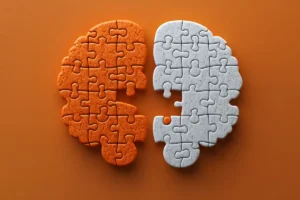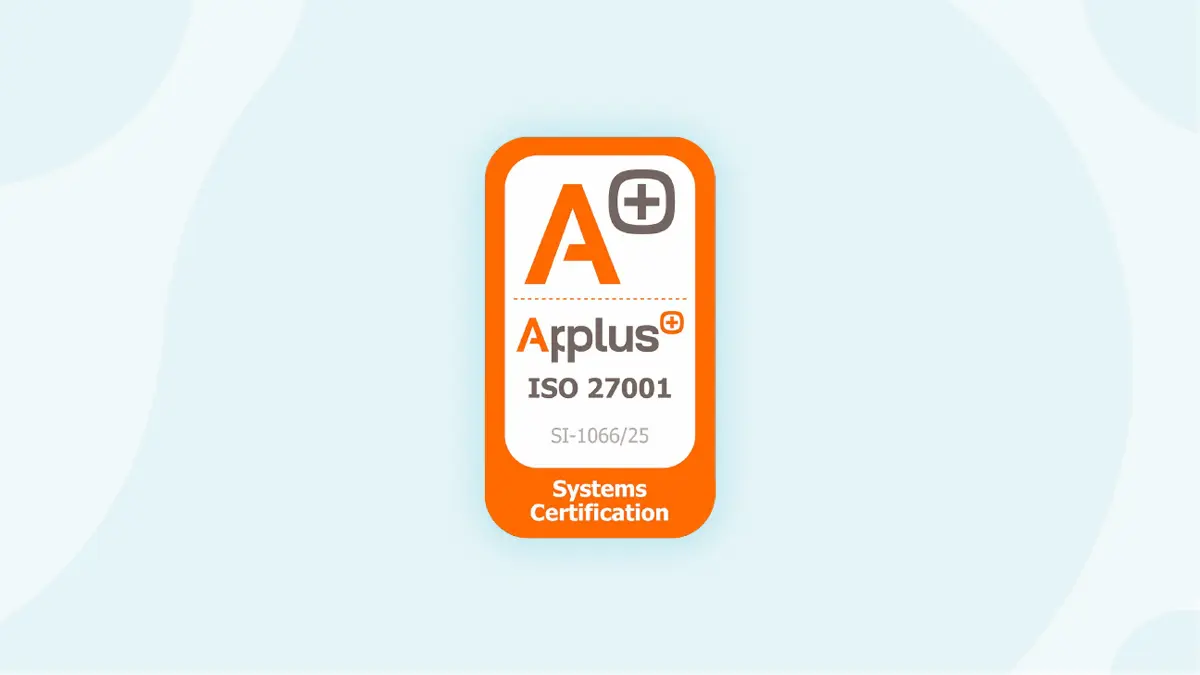Introduction
As we age, our body changes, but did you know our brain does too? In the process of aging we may take longer to learn new things or to remember information. Also, our physical health weakens and our body becomes more fragile. However, there are ways to counteract these changes. In this article, we will lay out ten tips that can help improve memory and keep the mind sharp.
How to improve memory?
It’s normal to experience some memory loss as we age, but we can do things to help improve our cognitive health:
Eat healthy foods
According to Harvard Health, eating well can help improve cognitive health. Like the rest of the body, eating well is also good for brain health. Eating plenty of vegetables, fruits and whole grains can help maintain good cognitive health. Foods rich in antioxidants, such as blueberries and spinach, can also help protect the brain from damage and improve memory.
If you don’t like vegetables or fruits, don’t worry! You can improve your cognitive health by modifying your diet. Try adding spices like turmeric or saffron to your meals, as both are known for their mental benefits.
Engage in physical activity
Exercise is excellent for overall health, including brain health. A study published in the journal Neurology found that people who exercise regularly have a lower risk of cognitive impairment as they age.
Try taking a lap around the block, going for a bike ride, or even doing some stretches. Anything that gets your body moving will benefit your cognitive health and improve your memory. Swimming is also a great form of exercise for cognitive health because it improves blood flow to the brain and can help with memory.
Stay connected with others
Studies show that socially active people have better cognitive health as they age. Participating in social activities can help keep the mind active and engaged.
Some great ways to stay socially active and improve memory are joining a book club, playing cards with friends, or attending talks and events at local libraries.
Play cognitive games
Games like crosswords, Sudoku and card games can help stimulate cognitive health. These games help keep the mind active and challenged, which can help improve memory and cognitive health.
You can also try online cognitive games specifically designed to improve cognitive health. These games can be fun and challenging, and are a great way to keep the mind active while sitting at home or traveling.
Sleep well
Sleep is vital for cognitive health. The Sleep Foundation recommends that adults sleep at least seven to eight hours per night.
Avoid caffeine and alcohol before bedtime, and make sure your bedroom is dark, quiet, and cool. Establish a regular sleep schedule so your body knows when it’s time to wind down. Creating a relaxing bedtime routine that includes reading, stretching, or listening to soothing music can improve memory and stress levels.
Manage stress
Stress can have adverse effects on cognitive health, so it’s essential to keep it in check. Techniques like yoga and meditation can help reduce stress levels and improve memory. So, if you feel stressed, try to set aside some time each day to practice mindfulness.
Hydrotherapy can also help control stress. A hot bath or a soak in a pool can be therapeutic, and it’s excellent for maintaining physical health. Conventional bathtubs can be dangerous because their surface is slippery. In contrast, walk-in tubs are a much safer bathing alternative, as they are equipped with anti-scald systems, a non-slip surface, and grab bars, among other features. In addition, they have water jets and are great for hydrotherapy.
Stay hydrated
Dehydration can cause countless health problems, including cognitive impairment, so it’s essential to drink plenty of water throughout the day. Carry a water bottle everywhere and try to drink at least eight glasses of water a day.
If you don’t like water, you can get cognitive benefits and improve memory by drinking other beverages like herbal tea or fruit-infused water. You can also eat foods that contain a lot of water, such as watermelon or cucumber.
Take omega-3 fatty acid supplements
Want to improve memory and brain function? Omega-3 fatty acids are essential for cognitive health, and a study has found they may help prevent cognitive decline.
You can get omega-3 fatty acids by eating salmon, flaxseed and nuts. Or, you can supplement them with omega-3 capsules or fish oil. Another source of omega-3 fatty acids is krill oil, which is a good option for those allergic to shellfish. These nutrients are great to consume if you want to improve memory.
Avoid smoking and excessive alcohol consumption
The National Institute on Aging recommends that adults limit their alcohol consumption to two drinks per day if they want to maintain cognitive health and improve memory. Likewise, tobacco use can cause memory loss and dementia.
An occasional glass of wine is fine, but anything more could lead to cognitive decline. Therefore, if you want to keep your cognitive health in check and improve memory, it’s essential to avoid tobacco and excessive alcohol consumption.
Have annual medical check-ups
It’s essential to maintain regular medical care to detect and treat cognitive decline early. Your doctor can perform cognitive tests to look for any changes in your cognitive health.
Regular check-ups also allow for the early detection of other health conditions that can cause cognitive decline. For example, cognitive decline can be a symptom of high blood pressure and diabetes. If cognitive decline is detected early enough, your doctor can treat its underlying cause. So, don’t skip your annual check-ups if you want to improve memory and maintain your cognitive health.
Relying on cognitive stimulation to improve memory and cognitive health
Cognitive stimulation is essential for cognitive health because it helps keep the brain active and engaged. There are many cognitive stimulation activities you can do to improve memory. Lack of cognitive stimulation can lead to cognitive decline, so it’s essential to keep the brain active.
Some cognitive stimulation activities are reading, games, puzzles and learning a new language. These activities can help improve memory, problem-solving ability and critical thinking.
Conclusion
These are just some tips to help improve cognitive health and enhance memory as we age. The good news is that cognitive decline does not always have to be permanent. Cognitive health can improve if cognitive decline is detected early and treated appropriately.
If you are concerned about memory loss, cognitive decline or cognitive impairment, or if you want to improve memory and cognitive health, it’s essential that you talk to your doctor.
References
- Balagam, Iman. “Exercise Your Brain: Jigsaw Jigsaw Jigsaw Jigsaw Jigsaw Jigsaw Jigsaw Jigsaw Jigsaw Jigsaw Jigsaw Jigsaw Jigsaw Jigsaw Jigsaw Jigsaw Jigsaw Jigsaw Jigsaw Jigsaw Jigsaw Jigsaw Jigsaw Jigsaw Jigsaw Jigsaw Puzzles and Games to Boost Cognitive Performance.” Healthline, Healthline Media, 17 June 2021,
https://www.healthline.com/health/mental-health/games-and-Jigsaw Jigsaw Jigsaw Jigsaw Jigsaw Jigsaw Jigsaw Jigsaw Jigsaw Jigsaw Jigsaw Jigsaw Jigsaw Jigsaw Jigsaw Jigsaw Jigsaw Jigsaw Jigsaw Jigsaw Jigsaw Jigsaw Jigsaw Jigsaw Jigsaw Jigsaw Puzzles-to-exercise-your-brain. - “Cognitive Health and Older Adults | National Institute on Aging.” National Institute on Aging, https://www.facebook.com/NIHAging/, https://www.nia.nih.gov/health/cognitive-health-and-older-adults. Accessed 17 May 2022.
- “Facts About Aging and Alcohol | National Institute on Aging.” National Institute on Aging, https://www.facebook.com/NIHAging/, https://www.nia.nih.gov/health/facts-about-aging-and-alcohol. Accessed 17 May 2022.
- “Foods Linked to Better Brainpower – Harvard Health.” Harvard Health, 30 May 2017, https://www.health.harvard.edu/healthbeat/foods-linked-to-better-brainpower.
- “How Much Sleep Do We Really Need? | Sleep Foundation.” Sleep Foundation, 9 Mar. 2021, https://www.sleepfoundation.org/how-sleep-works/how-much-sleep-do-we-really-need.
- “Omega-3 Fatty Acids and Cognitive Function in Women – PMC.” PubMed Central (PMC), https://www.ncbi.nlm.nih.gov/pmc/articles/PMC2826215/. Accessed 17 May 2022.
- “Physical Activity and Risk of Cognitive Impairment and Dementia in Elderly Persons – PubMed.” PubMed, https://pubmed.ncbi.nlm.nih.gov/11255456/. Accessed 17 May 2022.
- “Walk-in Tub Guide – Types, Features, Pros and Cons.” Basement Guides, 8 Sept. 2020, https://www.basementguides.com/walk-in-tub/.
If you enjoyed this post about tips to improve memory and cognitive health, you might be interested in these posts from NeuronUP:
“This article has been translated. Link to the original article in Spanish:”
10 consejos para mejorar la memoria y la salud cognitiva







 Rehabilitative treatment for Developmental Coordination Disorder
Rehabilitative treatment for Developmental Coordination Disorder
Leave a Reply